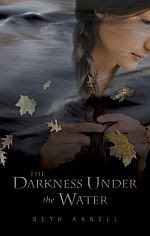
Today I left this "comment" for Laura Tavares at the "Facing History Blog," and look forward to more conversations on the topic. This morning, I want to bring you all into this ... and hope you'll write something about your own perspective on the Harper Lee books, as well as family secrets that propel you toward seeking justice, or perhaps on
The Darkness Under the Water.
My mantra for the examined life has become: "We are all in this together." Right?
Thank you, Laura Tavares, for writing of this new publication as "an invitation to read both books with a more realistic, complex, and sophisticated analysis of morality." I find the sequence of change in the two books very believable, because the same thing happened in my life while writing "The Darkness Under the Water" -- a book that first was "only a mystery" and soon became an effort to probe the Vermont Eugenics Project and its generations-long effects on those of Abenaki heritage. At the time of publication, I carried my own secrets and guilt based in a dual family heritage of Surviving the Holocaust (my father was a German Jew) and certainty that we are morally obliged to step forward against injustice (my mother was a lapsed Quaker). In the seven years since my book's publication and very mixed reception, I've learned far more history and gained further moral imperatives toward the endless struggle for justice. Just as my first and second versions of the book were vastly different, so would be the book I would now write. Harper Lee may well have had the same experience. I hope so -- there is goodness in growing and deepening.
See more of the Facing History and Ourselves conversations at
http://facingtoday.facinghistory.org.
Published on July 16, 2015 08:20

For all of the folks who bemoan the depiction of Atticus Finch in Harper Lee's new novel, read this insightful letter published in today's Boston Globe:
"There is ample suggestion in the novel “To Kill A Mockingbird” that Atticus, like so many white Southerners of his time, is a segregationist and thus a racist. His children go to an all-white school, the family socializes only with a strange assortment of whites, and Atticus certainly does not intend to marry the African-American woman who takes care of Jem and Scout.
He is courageous and decent enough to do what he can to oppose an innocent man being convicted, but as a member of the establishment, he doesn’t otherwise challenge norms.
The characterization of Atticus in “To Kill a Mockingbird” and “Go Set a Watchman” may be quite compatible.
What is different is that in one book the narrator is a child who idealizes her father and thinks that her town is her world, and in the other the narrator is a well-traveled woman trying to come to terms with her upbringing."
(Lisa Blumberg - West Hartford, Conn.)